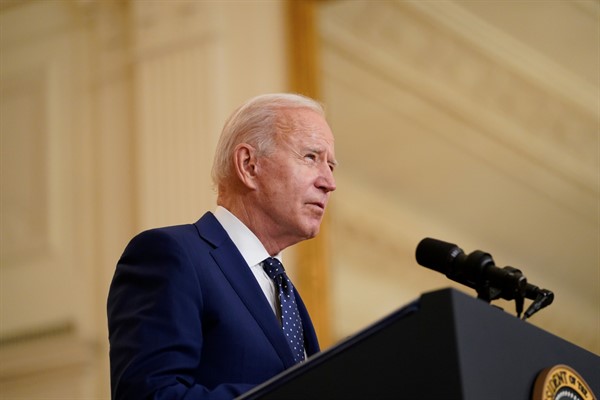If we’re honest with ourselves, it’s hard to deny that Donald Trump is a tough act to follow. As much as the return to calm since he left office—and more importantly, since his Twitter account was suspended—has been welcome, the drama and unpredictability he brought to the American presidency was as transfixing as it was unprecedented. This was perhaps truer in the realm of foreign policy than elsewhere due to the outsized autonomy U.S. presidents enjoy in the conduct of diplomacy, but also because of the impact Trump’s disregard for conventional wisdoms and established protocols had on America’s national interests and security.
It was no surprise, then, that for months before the U.S. presidential election, and in the months between the election and Joe Biden’s inauguration, more attention was given to how he would conduct U.S. foreign policy than any other issue, with the possible exception of his plans for handling the coronavirus pandemic. The challenges Biden faced were well-known: to repair the damage Trump had done to America’s alliances and partnerships; to reestablish America’s credentials as a “responsible stakeholder” in multilateral institutions and diplomacy; to reassert American leadership on issues that transcend borders, like climate change; and to do all of that while rehabilitating America’s reputation as a champion, but also an upholder, of human rights.
How he would go about addressing these challenges, however, was the subject of much speculation. Would he seek to quickly undo Trump’s legacy on multilateralism and climate diplomacy? Would he give more purchase in the formulation of policy to the Democratic Party’s centrist foreign policy establishment or to its more progressive left wing? Would he remove U.S. sanctions on Iran unconditionally or use them for leverage in renegotiating the multilateral nuclear deal with Tehran? And perhaps most critically, would he prioritize cooperation or confrontation with China, as well as with Russia?

